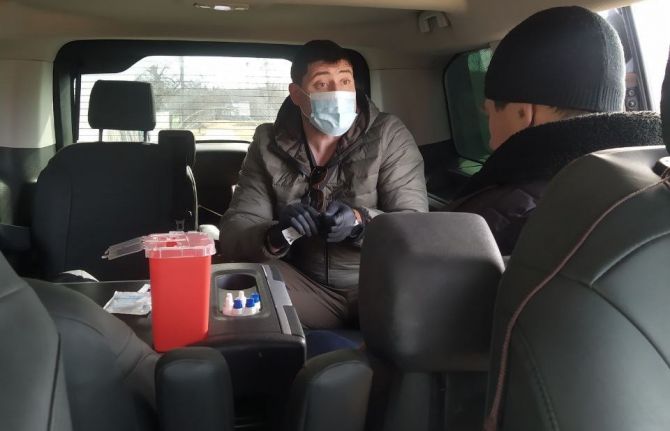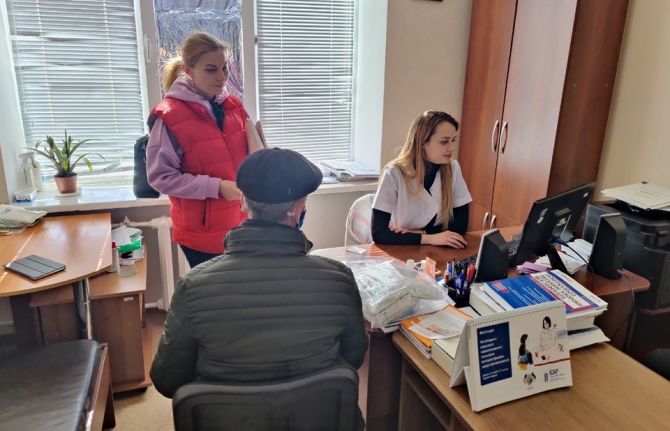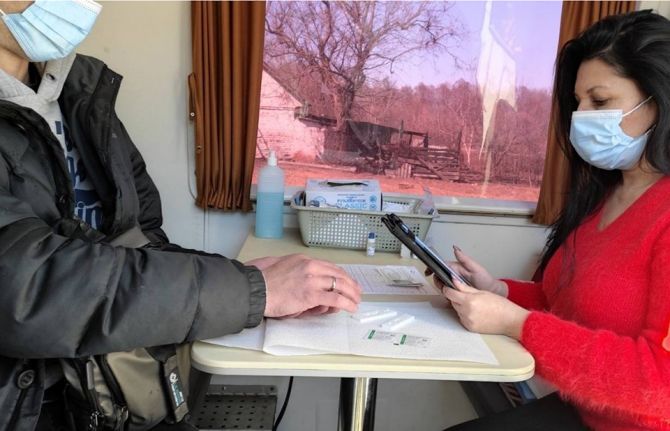



Feature Story
Grass-roots providers stay mobile in Ukraine
12 May 2022
12 May 2022 12 May 2022Many life-saving health services could not operate after the breakout of the war in Ukraine.
But grass-root providers such as the Alliance for Public Health found ways to keep going. Despite roads being mined and many bridges blown up, the Mobile HIV Case-Finding project used its 16 vans to deliver food, HIV treatment and other essentials around the country. It also helped people find shelter.
Iryna, the Coordinator of the mobile clinic team in the Chernihiv region, said the war had complicated its work immensely. Chernihiv borders the Russian Federation and Belarus in northern Ukraine.
“Many people were on the move, going from one place to another,” she said. “It was very difficult to work.”
But since mid-March, the Alliance for Public Health has restored many of its services. The nongovernmental organization works mainly with people who inject drugs and their partners.
“The substantial number of new HIV cases in Ukraine are registered among injecting drug users because of unsafe injecting practices,” explains the UNAIDS Country Director for Ukraine, Raman Hailevich.
He knows that reaching drug users was a challenge before the war, and it’s an even greater challenge now. The credit, he said, goes to civil society groups.
“Community-based organizations working with this type of hard-to-reach population provide the most essential outreach to these groups. Without them, the delivery of prevention programmes among people who use drugs would not be possible,” he said.
Because of the insecurity, the Alliance for Public Health saw a drop in testing for HIV and hepatitis C. Iryna, however, is proud because, she said, the teams delivered treatment to more than 1400 people in March and April through the mail and/or personal home delivery.
The Mobile HIV Case-Finding project, founded in 2019, is implemented by the Alliance for Public Health and the Global Fund to Fight AIDS, Tuberculosis and Malaria and is funded by the CDC and PEPFAR.



